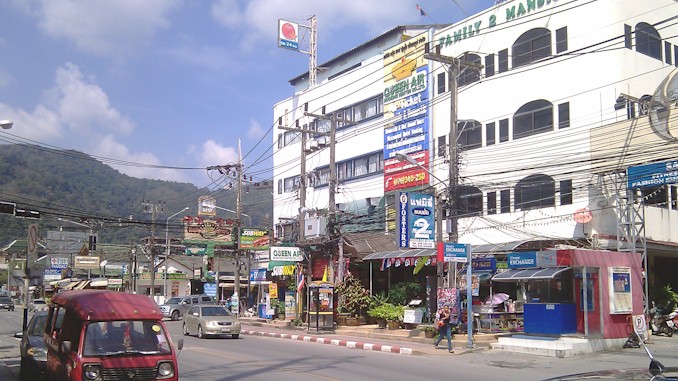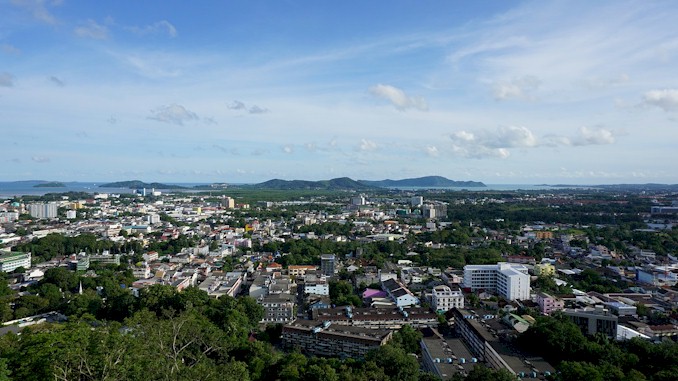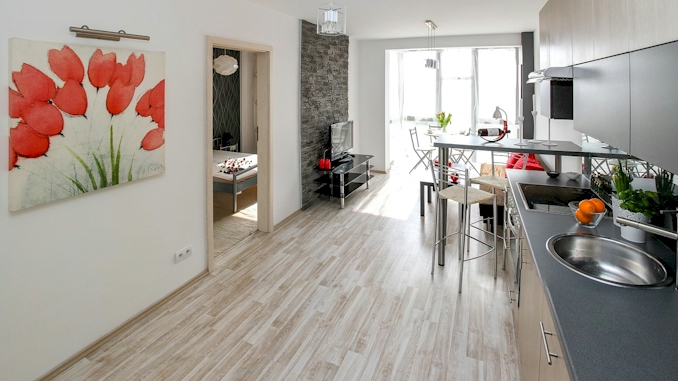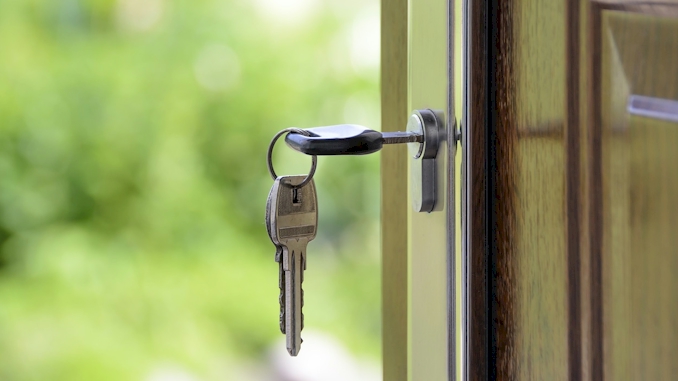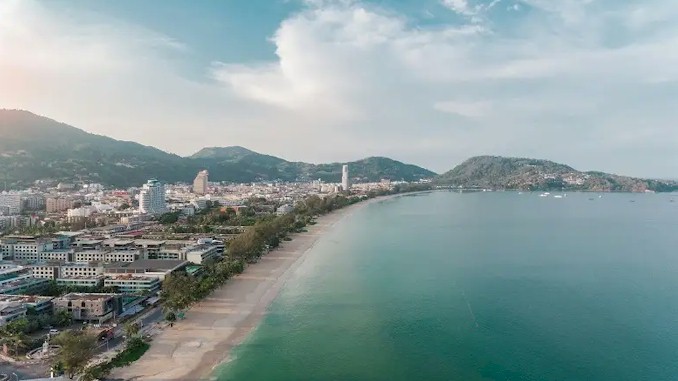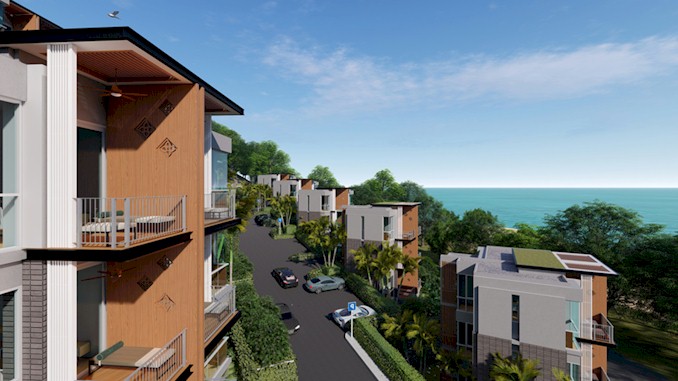Embrace the Expat Life: Apartments in Phuket
If you are looking for a new adventure and a change of scenery, you might be interested in living as an expat in Phuket, Thailand. Phuket is a beautiful island with stunning beaches, rich culture, and friendly locals. But finding a suitable apartment in Phuket can be challenging, especially if you don’t speak the language or know the market. That’s why I’m here to help you. I’m an experienced expat who has lived and worked in Phuket for over five years. I know the best areas, the best deals, and the best tips to make your expat life in Phuket enjoyable and hassle-free. In this blog post, I will share with you some of the best apartments in Phuket for expats, and how to find them.
To find an apartment in Phuket, one can use various online platforms, such as Airbnb, Booking.com, or PhuketRentHouse.com, to browse available listings and filter them by location, price, amenities, and reviews. Alternatively, one can also visit local real estate agencies or look for signs of vacancies in the desired area. Once a suitable apartment is found, one should contact the owner or agent and arrange a viewing and a contract negotiation.
Finding an apartment in Phuket is only the first step to living your dream of being an expat in Thailand. There are many other things you need to know and prepare for, such as visa requirements, cost of living, culture shock, and more. In the following sections, I will share with you some of the most important and useful insights and advice that I have learned from my own experience and from other expats who have been living here for a long time. You will discover how to make the most of your time in Phuket and enjoy the benefits of living in a diverse and vibrant community. So, don’t stop reading now, because you are about to learn everything you need to know to embrace the expat life in Phuket.
Phuket Apartment Rental Guide: How to Pick the Best Location for Your Needs
When I first moved to Phuket, I had no idea where to live. I wanted to find a place that matched my lifestyle, budget, and preferences, but I didn’t know much about the different areas of the island. So I decided to explore and try out different places until I found the one that felt like home. Here are some of the areas that I liked the most and why.
- Phuket Town: I love Phuket Town because it has a lot of character and culture. It’s where you can find the old colonial buildings, the colorful street art, and the lively markets. There are also so many options for food here, from cheap and delicious street food to fancy and exotic restaurants. The best part is that living in Phuket Town is quite affordable compared to other areas. The only downside is that it’s far from the beach, so you’ll need a car or a bike to get there.
- Patong: Patong is the place to be if you’re into nightlife and entertainment. Patong Beach is a great place to enjoy the sun and the sea, with lots of fun activities like jet-skiing, parasailing, and banana boating. There are also hundreds of bars, clubs, restaurants, and shops along the famous Bangla Road, where you can party all night long. Patong is ideal for those who want to have a blast and meet people from all over the world. However, Patong can also be noisy, crowded, and expensive .
- Kata and Karon: Kata and Karon are two of my favorite beaches in Phuket. They are both beautiful and relaxing, with clear water, soft sand, and scenic views. They also have a good selection of restaurants, bars, shops, and hotels, but without the chaos of Patong. Kata and Karon are suitable for those who want to enjoy a beach lifestyle with some amenities and entertainment nearby. The only drawback is that they can get quite busy during the high season .
- Bang Tao: Bang Tao is a stunning beach on the west coast of Phuket that has some of the most luxurious resorts and villas on the island. It also has a golf course, beach clubs, spas, and international restaurants. Bang Tao is perfect for those who seek a high-end and sophisticated living experience with easy access to the beach and other facilities. However, Bang Tao can also be quite pricey and exclusive .
- Rawai: Rawai is a cozy and charming area at the southern tip of Phuket that has a local fishing village feel. It is known for its seafood restaurants, island hopping tours, and nearby attractions such as Promthep Cape and Nai Harn Beach. Rawai is popular among expats and long-term visitors who want to experience a more authentic and laid-back side of Phuket. The main downside is that Rawai Beach is not suitable for swimming due to the boats parked there .
These are just some of the areas that I liked the most in Phuket, but there are many more to explore and discover. The best way to find your ideal location is to visit different areas yourself and see which one suits you best.
How to Save Money and Get the Best Deal on Your Phuket Apartment Rental
One of the biggest challenges of living in Phuket is finding a good deal on your apartment rental. Phuket is a popular tourist destination, which means that the demand for accommodation is high and the prices can be steep. However, there are ways to save money and get the best value for your money when renting an apartment in Phuket. Here are some tips and tricks that I learned from my own experience and from other expats who have been living here for a long time.
- Do your research: Before you start looking for an apartment, you should have a clear idea of what you want and what you can afford. You should also know the average rent prices in different areas of Phuket, so you can compare and negotiate better. You can use online platforms, such as Numbeo, Livingcost, or Expatistan, to get an idea of the cost of living and rent prices in Phuket. You can also browse through listings on websites, such as Siam Real Estate or Phuket Rent House, to see what’s available and what’s the market rate.
- Be flexible: If you want to save money on your rent, you might have to compromise on some aspects of your apartment. For example, you might have to choose a smaller or older apartment, a less central or less popular location, or a longer-term contract. You might also have to pay extra for utilities, internet, or parking. You should decide what are your must-haves and what are your nice-to-haves, and be willing to adjust your expectations accordingly.
- Avoid peak season: The peak season in Phuket is from November to February, when the weather is dry and sunny and the tourists flock to the island. This is also when the rent prices are the highest and the availability is the lowest. If you want to save money and have more options, you should avoid looking for an apartment during this time. The best time to look for an apartment is from March to October, when the weather is wetter and hotter and the tourists are fewer. This is when you can find lower prices and better deals on your rent.
- Negotiate: One of the best ways to save money on your rent is to negotiate with the owner or agent. You should always ask for a discount or a better offer, especially if you are renting for a longer period, paying upfront, or renting during low season. You should also compare different offers and use them as leverage to get a better deal. However, you should also be respectful and realistic, and not expect too much or too little. You should aim for a win-win situation where both parties are happy with the agreement.
- Get referrals: Another way to save money on your rent is to get referrals from other expats who have been living in Phuket for a while. They might know some good places that are not advertised online or some trustworthy owners or agents that they have worked with before. They might also be able to give you some insider tips and advice on how to find a good deal on your rent. You can ask around in online forums, groups, or websites that cater to expats in Phuket, such as Thaivisa, Expat.com, or Internations. You can also network with other expats in person by joining events, clubs, or activities that interest you.
These are some of the ways that I managed to save money and get the best deal on my apartment rental in Phuket. I hope they will help you too. Remember that finding an apartment in Phuket can be challenging but rewarding, so don’t give up and keep looking until you find your perfect home.
Phuket Apartment Rental Scams: How to Spot and Avoid Them
Renting an apartment in Phuket can be a great way to enjoy the island life, but it can also expose you to some risks and dangers. There are some unscrupulous people who try to take advantage of unsuspecting renters and scam them out of their money. Here are some of the most common apartment rental scams in Phuket and how to spot and avoid them.
- Fake Credit Check: One prevalent scam involves fake landlords requesting a credit check. They may ask you to submit personal information, including credit card numbers and identification details, either through a form or email. This information is then sold or misused. To avoid this scam, utilize property portals that require personal verification, as scammers tend to avoid platforms with stringent verification processes.
- Asking for a Deposit: Another common scam targets renters by requesting an initial deposit before allowing them to view the property. Scammers may even insist on payment via Bitcoin or other online methods. Overseas renters, who are planning to relocate to a new country, are particularly vulnerable to this scam. Remember, never pay a deposit until you have physically visited and inspected the property in person.
- Duplicate Ads: Some unscrupulous agents duplicate existing property listings, copying the information and photos, and falsely claim the property as their own. This scam is often used to lure potential renters into a bait-and-switch situation. You may inquire about a specific property only to be informed that it has already been rented out. The agent will then try to redirect your attention to other properties they represent. Remain cautious and verify the authenticity of listings before engaging with agents.
- Fake listings: Scammers will often create fake listings for apartments that don’t actually exist. They may use photos of real apartments that are for sale or rent, or they may create their own photos. To spot a fake listing, look for any red flags, such as:
- The price is too good to be true.
- The landlord is unwilling to meet in person.
- The landlord asks for payment in advance, without seeing the apartment first.
- Double-booking: Scammers may also try to double-book an apartment. They will offer the apartment to multiple people, and then collect payment from each person. To avoid this scam, always check with the landlord to make sure that the apartment is available before you book it.
- Deposit scams: Scammers may also ask for a large deposit upfront. They may claim that the deposit is needed to cover the cost of utilities or cleaning, but they will never return the deposit. To avoid this scam, always ask for a receipt for any deposit that you pay.
As a prospective expat searching for an apartment in Phuket, it’s essential to be aware of rental scams that unfortunately exist in the real estate market. These scams can range from fake listings to fraudulent agents, potentially resulting in financial loss and disappointment. By knowing how to spot and avoid these scams, you can protect yourself and ensure a smooth and secure rental process. Here are some key tips to help you navigate the Phuket rental market with confidence:
- Research and Verification: Before engaging with any rental listings or agents, conduct thorough research to gather information about reputable real estate agencies and property management companies in Phuket. Verify the legitimacy of the agency or agent by checking their credentials, reviews, and licenses. Reputable agencies will have a professional online presence, clear contact information, and a physical office location.
- Physical Inspection: Whenever possible, schedule a physical inspection of the apartment you are interested in. Scammers often use generic photos or misleading descriptions to lure unsuspecting renters. By visiting the property in person, you can assess its condition, location, and suitability to meet your specific needs. If you are unable to visit in person, consider requesting a virtual tour or video call to get a better understanding of the property.
- Secure Payment Methods: Exercise caution when it comes to making payments. Avoid wire transfers or cash payments directly to the landlord or agent without proper documentation. Reputable agencies will typically offer secure payment options, such as bank transfers or online payment platforms. Ensure that you receive a clear rental agreement or contract detailing the terms, conditions, and payment schedule.
- Avoid Unrealistic Offers: If an apartment rental seems too good to be true in terms of price or amenities, it’s crucial to proceed with caution. Scammers may lure potential renters with unrealistically low prices or excessive promises. Compare rental rates in the area to get a sense of the average market price and be skeptical of any significant deviations from the norm.
- Trust Your Instincts: Intuition plays a crucial role in avoiding rental scams. If something feels off or suspicious during your interactions with agents or landlords, trust your instincts. Pay attention to any red flags, such as pushy agents, incomplete documentation, or evasive answers to your questions. Take your time to make an informed decision and don’t feel pressured into finalizing a rental agreement hastily.
- Seek Assistance from Reputable Agents: Engaging the services of reputable and licensed real estate agents can significantly minimize the risk of falling victim to rental scams. Established agents have in-depth knowledge of the local market, can guide you through the rental process, and offer access to legitimate listings. Research well-known agencies and seek recommendations from trusted sources to ensure a reliable and secure experience.
Quote from a real estate expert: “Phuket is a sought-after destination for expats, but unfortunately, rental scams can occur. By exercising caution, conducting thorough research, and seeking assistance from reputable agents, you can protect yourself from fraudulent activities and find a secure and suitable apartment for your needs.” – Julia, Real Estate Agent.
By staying vigilant, conducting thorough research, verifying credentials, inspecting properties in person, using secure payment methods, being cautious of unrealistic offers, and trusting your instincts, you can significantly reduce the risk of falling victim to rental scams in Phuket. Remember, taking proactive steps and seeking assistance from reputable professionals will ensure a safe and successful apartment rental experience.
Thailand Visa Requirements for Expats: How to Stay Legally in Phuket
If you want to live in Phuket as an expat, you will need to obtain a valid visa that allows you to stay legally in Thailand. Depending on your nationality, purpose of stay, and duration of stay, you might need a different type of visa. Here are some of the most common visa options for expats in Phuket and their requirements.
- Tourist visa: This is the simplest and most common visa for short-term visitors who want to enjoy the island as tourists. A tourist visa allows you to stay in Thailand for up to 60 days, which can be extended for another 30 days at an immigration office. Some countries are eligible for visa exemption, which means they can enter Thailand without a visa for up to 14, 30, or 90 days, depending on their agreement with Thailand. Some countries can also obtain a visa on arrival for up to 15 days at designated airports or border checkpoints. The requirements for a tourist visa are: a valid passport with at least six months of validity and one or two blank pages, a completed visa application form, two passport-sized photos, proof of onward or return flight ticket, proof of accommodation in Thailand, and proof of sufficient funds (at least 20,000 THB per person or 40,000 THB per family).
- Non-immigrant visa: This is the visa for expats who want to stay in Thailand for longer than 90 days or for purposes other than tourism, such as business, work, study, retirement, medical treatment, etc. A non-immigrant visa allows you to stay in Thailand for up to 90 days, which can be extended for up to one year at an immigration office. There are different categories of non-immigrant visas, such as B (business or work), ED (education), O (family or retirement), M (media), R (religious), etc. The requirements for a non-immigrant visa vary depending on the category and purpose of stay, but generally include: a valid passport with at least six months of validity and one or two blank pages, a completed visa application form, two passport-sized photos, proof of onward or return flight ticket, proof of accommodation in Thailand, proof of sufficient funds (at least 20,000 THB per person or 40,000 THB per family), and additional documents related to the specific category and purpose of stay, such as an invitation letter from a Thai company or organization, an acceptance letter from an accredited educational institution in Thailand, a marriage certificate or birth certificate for family members of Thai nationals or foreigners holding a non-immigrant visa, a bank statement showing at least 800,000 THB for retirees over 50 years old, etc.
- Smart visa: This is a special type of visa for expats who are highly skilled professionals or investors in targeted industries that contribute to Thailand’s economic development and innovation. A smart visa allows you to stay in Thailand for up to four years without the need to apply for a work permit or report every 90 days to the immigration office. You can also bring your spouse and children under 20 years old as dependents under the same visa. There are four categories of smart visas: T (talent), I (investor), E (executive), and S (startup). The requirements for a smart visa vary depending on the category and qualification criteria, but generally include: a valid passport with at least six months of validity and one or two blank pages, a completed smart visa application form, two passport-sized photos, proof of onward or return flight ticket, proof of accommodation in Thailand, proof of health insurance covering at least 500,000 THB per year per person, and additional documents related to the specific category and qualification criteria, such as a certificate of qualification from the relevant Thai government agency or endorsed organization, proof of employment or service agreement with a company in Thailand that operates in targeted industries, proof of income or salary meeting the minimum requirement (at least 200,000 THB per month for T and E categories; at least 50% ownership and direct investment of at least 20 million THB for I category; at least 25% ownership and direct investment of at least 5 million THB for S category), etc.
- Permanent residence permit: This is the ultimate goal for expats who want to settle down in Thailand permanently. A permanent residence permit allows you to live in Thailand indefinitely without the need to apply for any visa extensions or report every 90 days to the immigration office. You can also enjoy other benefits such as buying property without restrictions, applying for Thai citizenship after five years of holding permanent residence status, etc. However, obtaining a permanent residence permit is not easy. There are strict quotas, criteria, and procedures that you need to meet and follow. The requirements for a permanent residence permit are: holding a non-immigrant visa and staying in Thailand for at least three consecutive years with the same visa extension, applying within the quota of 100 persons per nationality per year, having a valid reason for applying, such as working, investing, or having a Thai spouse or child, having a good knowledge of Thai language and culture, having a good record of conduct and no criminal history, having a stable income and paying taxes in Thailand, having a health certificate from a government hospital, and passing an interview and a test at the immigration office.
These are some of the most common visa options for expats in Phuket and their requirements. However, there might be other visa options or requirements that are not listed here. The best way to find out the most updated and accurate information is to consult with the Thai embassy or consulate in your home country or the immigration office in Thailand. Remember that visa regulations and procedures can change frequently and without prior notice, so you should always check before you travel or apply.
Cost of Living in Phuket: How to Budget and Manage Your Expenses as an Expat
Living in Phuket as an expat can be a rewarding and enjoyable experience, but it can also be a costly one. The cost of living in Phuket depends on many factors, such as your lifestyle, location, and preferences. However, you can still live comfortably and affordably in Phuket if you know how to budget and manage your expenses wisely. Here are some of the main categories of expenses that you will encounter in Phuket and how to save money on them.
- Rent: Rent is probably the biggest expense that you will have in Phuket, especially if you want to live near the beach or in a popular area. The average rent for a one-bedroom apartment in the city center is around $447 per month, while a three-bedroom apartment costs around $1,000 per month. However, you can find cheaper options if you look for apartments outside the city center, in less touristy areas, or in older buildings. You can also negotiate the rent with the landlord or agent, especially if you are willing to sign a longer-term contract or pay upfront. You can use online platforms, such as Siam Real Estate or Phuket Rent House, to browse through listings and compare prices.
- Utilities: Utilities include electricity, water, gas, internet, cable TV, and garbage collection. The average cost of utilities for a one-bedroom apartment in Phuket is around $78 per month. However, this can vary depending on your usage and consumption habits. You can save money on utilities by using energy-efficient appliances, turning off lights and devices when not in use, using fans instead of air-conditioning, and choosing a reliable and affordable internet provider. You can also ask your landlord or agent if utilities are included in the rent or not, and if not, how they are calculated and billed.
- Food: Food is another major expense that you will have in Phuket, but it can also be one of the most enjoyable ones. Phuket has a wide range of food options to suit different tastes and budgets, from street food stalls to fine dining restaurants. The average cost of food in Phuket is around $382 per month for one person. However, this can vary depending on your dietary preferences and eating habits. You can save money on food by cooking at home more often, buying groceries from local markets or supermarkets, avoiding imported or processed foods, and eating at local eateries instead of touristy ones. You can also use online platforms, such as Foodpanda or GrabFood, to order food delivery from various restaurants at reasonable prices.
- Transportation: Transportation is another essential expense that you will have in Phuket, especially if you want to explore the island and its surroundings. Phuket has several modes of transportation available, such as taxis, tuk-tuks, buses, motorbike taxis, car rentals, and scooters. The average cost of transportation in Phuket is around $114 per month for one person. However, this can vary depending on your travel frequency and distance. You can save money on transportation by using public buses or motorbike taxis for short trips, negotiating the fare with taxi or tuk-tuk drivers before getting in, renting a car or a scooter for longer trips or more convenience (but beware of scams), and using online platforms, such as Grab or Bolt, to book rides at fixed prices.
- Entertainment: Entertainment is another optional but enjoyable expense that you will have in Phuket, especially if you want to have fun and socialize with other expats or locals. Phuket has a lot of entertainment options to offer, from nightlife venues to cultural attractions to outdoor activities. The average cost of entertainment in Phuket is around $128 per month for one person. However, this can vary depending on your interests and hobbies. You can save money on entertainment by taking advantage of free or low-cost events or activities, such as festivals, markets, temples, beaches, parks, etc., using online platforms, such as Klook or Viator, to book tours or tickets at discounted prices, and avoiding expensive or scammy venues or services.
These are some of the main categories of expenses that you will encounter in Phuket and how to save money on them. However, there might be other expenses that are not listed here, such as health insurance, education fees, visa fees, etc., depending on your personal situation and needs. The best way to budget and manage your expenses as an expat in Phuket is to track your income and spending, set realistic and achievable goals, and adjust your lifestyle accordingly. Remember that living in Phuket can be as cheap or as expensive as you make it, so you should always live within your means and enjoy the island life responsibly.
Phuket Culture and Lifestyle: How to Adapt and Thrive as an Expat
Living in Phuket as an expat can be a rewarding and enjoyable experience, but it can also be a challenging one. Phuket has a rich and diverse culture and lifestyle, influenced by its history, geography, and people. As an expat, you will need to adapt and thrive in this environment, which might be very different from what you are used to. Here are some of the aspects of Phuket culture and lifestyle that you should know and appreciate as an expat.
- Religion: Religion is an important part of Phuket culture and lifestyle, as it is for most of Thailand. The majority of Phuket’s population is Buddhist, followed by Muslim, Christian, and Hindu minorities. You will see many temples, shrines, mosques, churches, and other places of worship around the island, as well as religious symbols, statues, and offerings. You will also witness many religious festivals, ceremonies, rituals, and practices throughout the year, such as Songkran (Thai New Year), Loy Krathong (Festival of Lights), Vegetarian Festival, Ramadan, Christmas, etc. As an expat, you should respect the religious beliefs and customs of the locals, and avoid any actions or words that might offend them. You should also dress modestly and appropriately when visiting any religious site or event, and follow the etiquette and rules of each place.
- Language: Language is another important aspect of Phuket culture and lifestyle, as it is for any place. The official language of Phuket is Thai, which is spoken by most of the locals. However, there are also other languages and dialects spoken on the island, such as Southern Thai (a regional variant of Thai), Yawi (a Malay dialect spoken by the Muslim community), Hokkien (a Chinese dialect spoken by the Peranakan Chinese community), English (spoken by some locals and expats), and other foreign languages (spoken by tourists and expats). As an expat, you should learn some basic Thai words and phrases to communicate with the locals and show your respect for their culture. You should also learn some greetings and expressions in other languages or dialects that you might encounter on the island, such as Sawasdee (hello) in Thai, Assalamualaikum (peace be upon you) in Yawi, Ni hao (hello) in Hokkien, etc.
- Food: Food is another essential aspect of Phuket culture and lifestyle, as it is for any place. Phuket has a wide range of food options to suit different tastes and budgets, from street food stalls to fine dining restaurants. The food in Phuket is influenced by its multicultural mix, blending Thai, Malay, Chinese, Indian, European, and other cuisines. Some of the most popular dishes in Phuket are Pad Thai (stir-fried rice noodles with eggs, tofu, bean sprouts, peanuts, and tamarind sauce), Tom Yum Goong (spicy sour soup with shrimp), Massaman Curry (coconut-based curry with meat, potatoes, peanuts, and spices), Hokkien Mee (fried yellow noodles with pork, seafood, vegetables, and soy sauce), Roti (flatbread with various fillings or toppings), etc. As an expat, you should try different types of food in Phuket and discover your favorites. You should also be aware of the level of spiciness and the ingredients of each dish before ordering or eating it.
- Etiquette: Etiquette is another vital aspect of Phuket culture and lifestyle that you should know and follow as an expat. Thai people are generally polite, friendly, hospitable, and respectful towards others. They value harmony, hierarchy, face-saving ,and non-confrontation in their interactions. They also have some specific rules and norms that govern their behavior in different situations. Some of the common etiquette tips that you should follow in Phuket are:
- Greet people with a wai (a gesture of pressing your palms together at chest level and bowing slightly), especially elders or superiors.
- Avoid touching anyone’s head or pointing your feet at anyone or anything sacred or important.
- Remove your shoes before entering someone’s home or a religious site.
- Smile often and avoid showing anger or frustration.
- Use formal titles or honorifics when addressing someone older or higher than you.
- Respect the royal family and the national symbols of Thailand.
- Tip generously for good service.
These are some of the aspects of Phuket culture and lifestyle that you should know and appreciate as an expat. However ,there might be other aspects that are not listed here that you will encounter or experience on the island. The best way to adapt and thrive as an expat in Phuket is to be open-minded, curious, and respectful towards the local culture and people, and to embrace the diversity and beauty of the island. Remember that living in Phuket can be a wonderful and enriching experience, if you are willing to learn and grow from it.
How to Meet and Connect with Other Expats in Phuket
If you’re feeling lonely or isolated as an expat in Phuket, don’t worry, you’re not alone. Phuket has a huge and diverse expat community, with people from all over the world who are just like you. There are many ways to meet and connect with other expats in Phuket, and to have fun and enjoy the island life. Here are some of the things I do to make friends and socialize in Phuket.
- Join online platforms and forums: One of the easiest and most convenient things to do is to join online platforms and forums that are made for expats in Phuket. There are many websites and apps that have tons of information, advice, tips, events, groups, and activities for expats in Phuket, such as InterNations, Expat Exchange, Expat Den, Thaiger, etc. I use these platforms to ask questions, share experiences, find answers, get recommendations, join discussions, and network with other expats who have similar interests or backgrounds as me. I also use these platforms to find out about upcoming events or activities that I can go to or join in.
- Attend events and activities: Another great thing to do is to attend events and activities that are organized by or for the expat community. There are many events and activities that happen regularly or occasionally in Phuket, such as social gatherings, networking sessions, cultural festivals, sports tournaments, workshops, seminars, etc. I find out about these events and activities through online platforms and forums, as well as through flyers, posters, newsletters, magazines, or word-of-mouth. I choose events and activities that suit my preferences, schedule, and budget, and use them as opportunities to mingle with other expats who share my passions or goals.
- Join groups and clubs: Another effective thing to do is to join groups and clubs that are formed by or for the expat community. There are many groups and clubs that exist in Phuket ,covering a wide range of topics and interests ,such as hobbies ,sports ,arts ,music ,languages ,business ,charity ,etc. I find out about these groups and clubs through online platforms and forums ,as well as through local media or organizations. I join groups and clubs that match my interests or skills ,and use them as platforms to interact with other expats who have similar hobbies or talents.
- Volunteer for a cause: Another rewarding thing to do is to volunteer for a cause that I care about or support. There are many causes that need volunteers in Phuket ,such as animal welfare ,environmental protection ,education ,health care ,etc. I find out about these causes through online platforms and forums ,as well as through local NGOs or charities. I volunteer for a cause that resonates with my values or passions ,and use it as a way to contribute to the community ,as well as to meet other expats who have similar ideals or motivations.
These are some of the things I do to meet and connect with other expats in Phuket ,and to enjoy the social and cultural aspects of the island. However ,there might be other things that you can do that I haven’t mentioned here that you will discover or experience on the island. The best thing to do is to be open-minded ,curious ,and friendly towards the people you meet ,and to embrace the diversity and beauty of the island. Remember that living in Phuket can be a wonderful and enriching experience ,if you are willing to learn and grow from it.
Phuket Travel Tips: How to Enjoy the Best Attractions and Activities in the Island
If you’re an expat in Phuket who loves to travel and explore new places, you’re in luck. Phuket has so much to offer in terms of attractions and activities, both natural and man-made, that will keep you entertained and amazed. Whether you’re looking for relaxation, culture, adventure, or fun, you’ll find something to suit your taste and mood in Phuket. Here are some of the best things I’ve done in the island.
- Explore Phang Nga Bay: Phang Nga Bay is one of the most stunning and scenic places I’ve ever seen in Phuket, and a must-see for anyone. The bay is famous for its dramatic limestone cliffs, caves, islands, and mangroves, that create a surreal and beautiful landscape. I’ve explored the bay by taking a boat tour, a kayak tour, and a speedboat tour, and each one was amazing. I’ve also visited some of the highlights of the bay, such as James Bond Island (where they filmed one of the movies), Koh Panyee (a floating village where people live on stilts), and Hong Island (a hidden lagoon inside an island) .
- Climb to Big Buddha of Phuket: Big Buddha of Phuket is one of the most iconic and impressive landmarks of the island, and a must-visit for any expat. The statue is 45 meters tall and made of white marble, sitting on top of a hill overlooking the island. I’ve climbed to the statue by car, motorbike, and taxi, and enjoyed the panoramic views of Phuket from the base. I’ve also visited the temple complex around the statue, where I’ve learned more about Buddhism, made donations, received blessings, and bought souvenirs.
- Take a Trip to Phi Phi Islands: Phi Phi Islands are one of the most popular and beautiful destinations in Phuket ,and a must-do for any expat. The islands are famous for their crystal-clear water ,white-sand beaches ,coral reefs ,and rock formations ,that make them a paradise for snorkeling ,diving ,swimming ,and sunbathing. I’ve taken a day trip to Phi Phi Islands by ferry ,speedboat ,and longtail boat ,and each one was awesome. I’ve also visited some of the highlights of the islands ,such as Maya Bay (where they filmed “The Beach”), Monkey Beach (where I’ve seen wild monkeys), Bamboo Island (a small and pristine island), and Phi Phi Viewpoint (where I’ve seen the stunning scenery of the islands).
- Party on Bangla Road: Bangla Road is one of the most lively and vibrant places I’ve been to in Phuket ,and a must-experience for any expat who loves nightlife. The road is famous for its bars ,clubs ,pubs ,restaurants ,and entertainment venues ,that cater to all kinds of tastes ,moods ,and budgets. I’ve partied on Bangla Road by walking along the street ,checking out different venues ,drinking ,dancing ,listening to music ,watching shows ,and meeting people. I’ve also visited some of the highlights of the road ,such as Illuzion (a huge nightclub with international DJs), Simon Cabaret (a glamorous ladyboy show), Tiger Disco (a multi-level complex with live bands), and Soi Sea Dragon (a street with go-go bars).
- Explore Old Phuket Town: Old Phuket Town is one of the most charming and cultural places I’ve seen in Phuket ,and a must-see for any expat who loves history ,art ,and architecture. The town is famous for its Sino-Portuguese style shophouses ,mansions ,temples ,museums ,and galleries ,that reflect the rich heritage and diversity of Phuket. I’ve explored Old Phuket Town by walking along the streets ,admiring the colorful buildings ,learning about the history ,visiting the attractions ,shopping at the markets ,and tasting the local food. I’ve also visited some of the highlights of the town ,such as Thalang Road (the main historical street), Jui Tui Shrine (a Chinese temple with firecrackers), Thai Hua Museum (a former school turned into a museum), Street Art (a collection of murals by local artists), and Sunday Walking Street Market (a lively night market with food ,crafts ,and performances).
I hope this post has given you some useful tips and insights on how to live in Phuket as an expat, and how to have fun and enjoy the island life. Phuket is a beautiful and diverse place that has something for everyone, and I’m sure you’ll love it as much as I do. If you have any questions or comments, feel free to leave them below. And if you’re ready to start your expat adventure in Phuket, don’t hesitate to contact me for more information and assistance. I’d love to help you make your dream come true!

